Eating seafood is one of life’s simple pleasures, but choosing the right kind of seafood makes all the difference. Sustainable options aren’t just better for the oceans—they’re healthier for you and often taste even better. By picking seafood that’s responsibly sourced, you’re supporting ecosystems and keeping marine life thriving for generations to come. Let’s explore some delicious and sustainable alternatives worth adding to your table!
Contents
- 1 Pacific Sardines
- 2 Farmed Mussels
- 3 Alaskan Wild Salmon
- 4 Atlantic Mackerel
- 5 Arctic Char
- 6 U.S. Farmed Catfish
- 7 Pacific Halibut
- 8 Farmed Barramundi
- 9 U.S. Trap-Caught Spot Prawns
- 10 Farmed Rainbow Trout
- 11 Pacific Albacore Tuna (Troll- or Pole-Caught)
- 12 Farmed Oysters
- 13 U.S. Atlantic Sea Scallops
- 14 Pole- and Line-Caught Skipjack Tuna
- 15 European Farmed Sea Bass (Branzino)
- 16 New Zealand Green-Lipped Mussels
- 17 Lionfish
- 18 More From RetailShout
- 19 This Week’s 12 Hottest Finds at Costco (12/01/2024)
- 20 12 Walmart’s Best Christmas Tree Deals for a Festive Holiday
Pacific Sardines
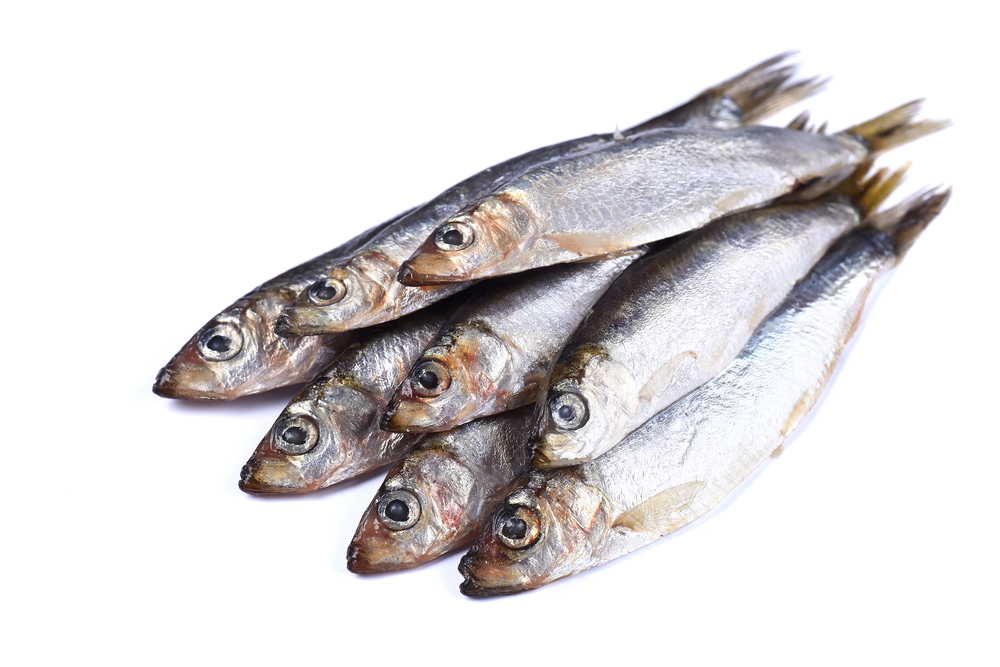
Pacific sardines are a sustainable choice due to their abundant populations and rapid reproduction rates. They are rich in omega-3 fatty acids, promoting heart health. Their small size results in lower mercury levels compared to larger predatory fish. Sardines can be enjoyed grilled, canned, or added to salads and pastas. Opting for Pacific sardines supports responsible fishing practices.
Farmed Mussels
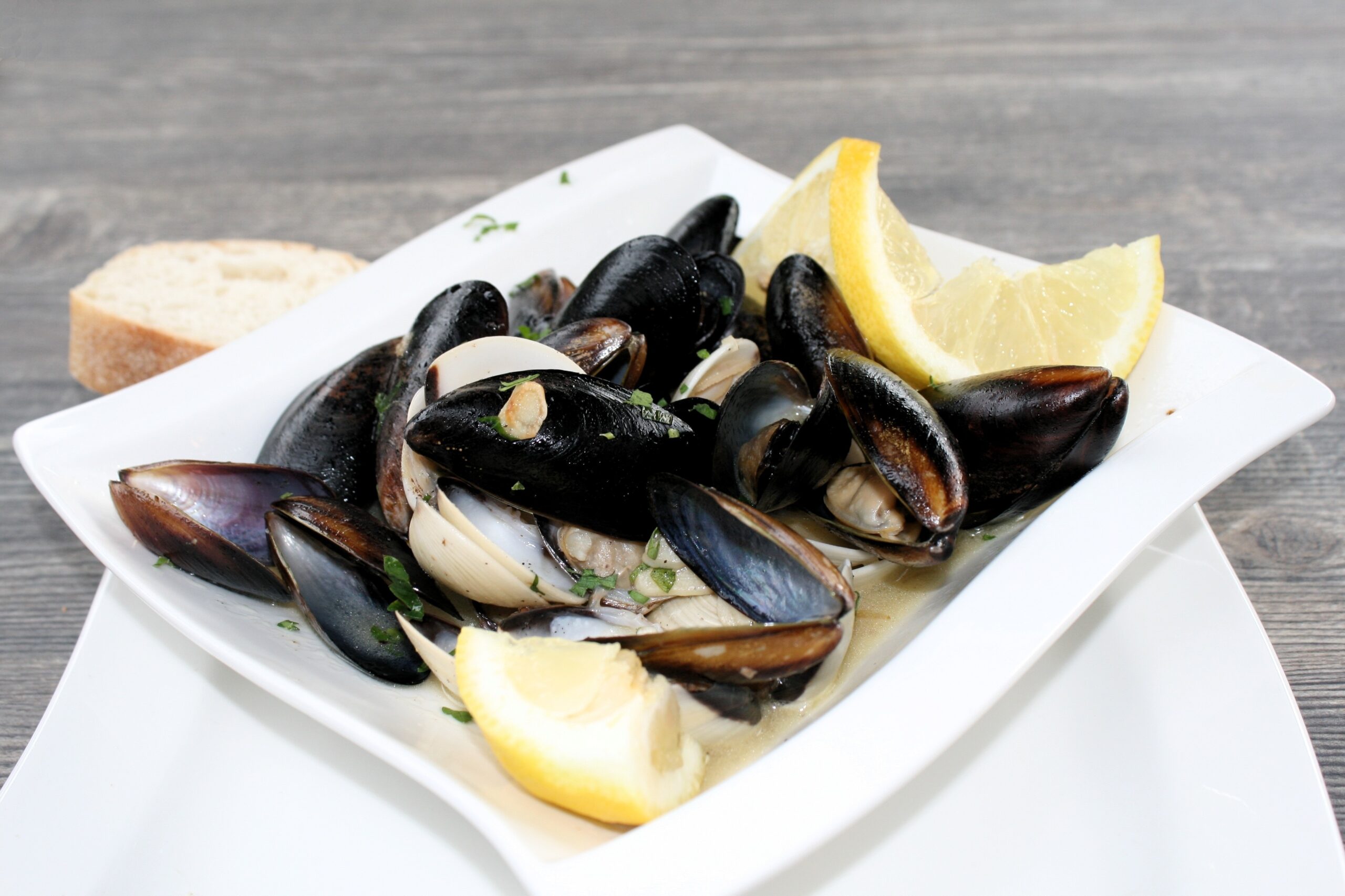
Farmed mussels are environmentally friendly as they filter and clean the water, enhancing marine ecosystems. They require no feed inputs, relying on natural plankton, making them resource-efficient. Mussels are versatile in cooking, suitable for steaming, baking, or adding to soups. Their farming has minimal environmental impact, with low greenhouse gas emissions. Choosing farmed mussels supports sustainable aquaculture practices.
Alaskan Wild Salmon

Alaskan wild salmon populations are well-managed, ensuring their sustainability. They are high in protein and omega-3 fatty acids, beneficial for cardiovascular health. The distinct flavor of wild salmon makes it ideal for grilling, baking, or smoking. Alaska’s stringent fishing regulations help maintain healthy salmon stocks. Selecting Alaskan wild salmon promotes responsible fisheries management.
Atlantic Mackerel
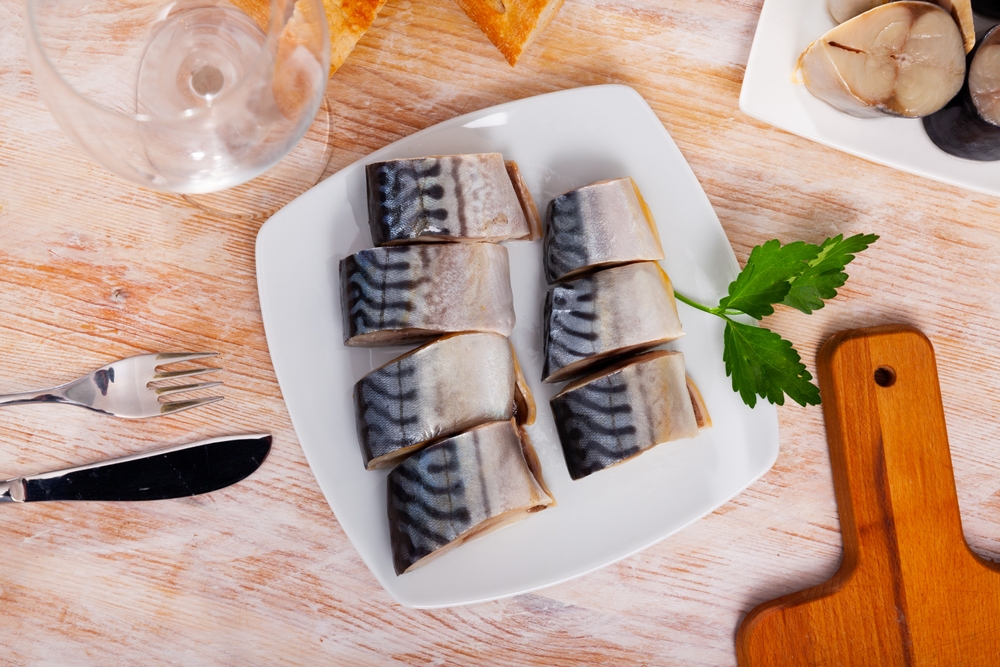
Atlantic mackerel are fast-growing and reproduce early, contributing to their sustainability. They are an excellent source of omega-3 fatty acids and vitamin B12. Mackerel can be grilled, broiled, or canned for various dishes. Their populations are considered healthy, with effective management in place. Choosing Atlantic mackerel supports sustainable fishing efforts.
Arctic Char

Arctic char, often farmed in closed systems, minimizes environmental impacts. They have a mild flavor and firm texture, suitable for grilling, baking, or poaching. Arctic char is rich in omega-3 fatty acids and high-quality protein. Sustainable farming practices ensure minimal habitat disruption. Opting for Arctic char supports eco-friendly aquaculture.
U.S. Farmed Catfish
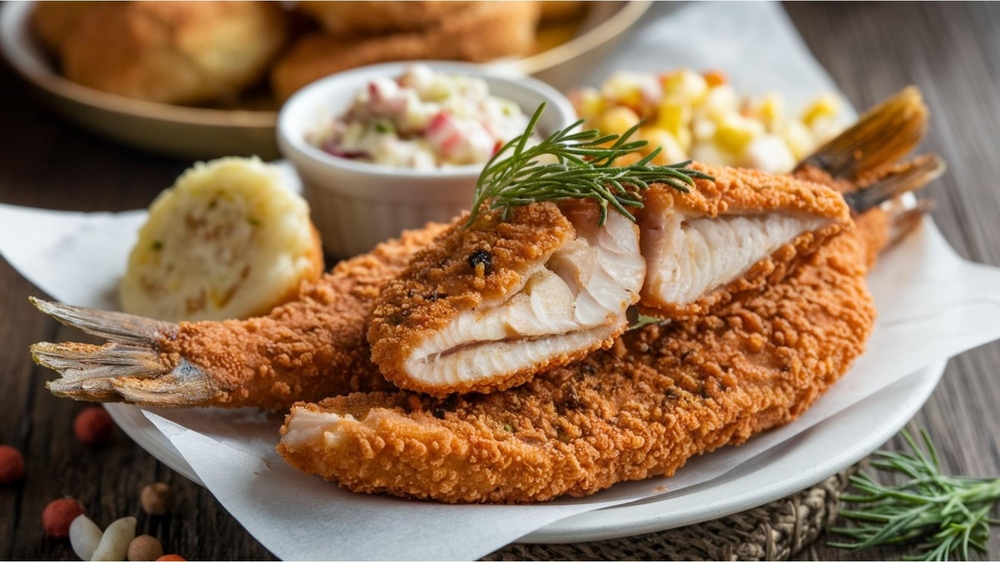
U.S. farmed catfish are raised in controlled environments, reducing pressure on wild populations. They have a mild taste and are adaptable to various cooking methods like frying, grilling, or baking. Catfish farming in the U.S. adheres to strict environmental regulations. This ensures minimal impact on surrounding ecosystems. Choosing U.S. farmed catfish supports sustainable aquaculture practices.
Pacific Halibut
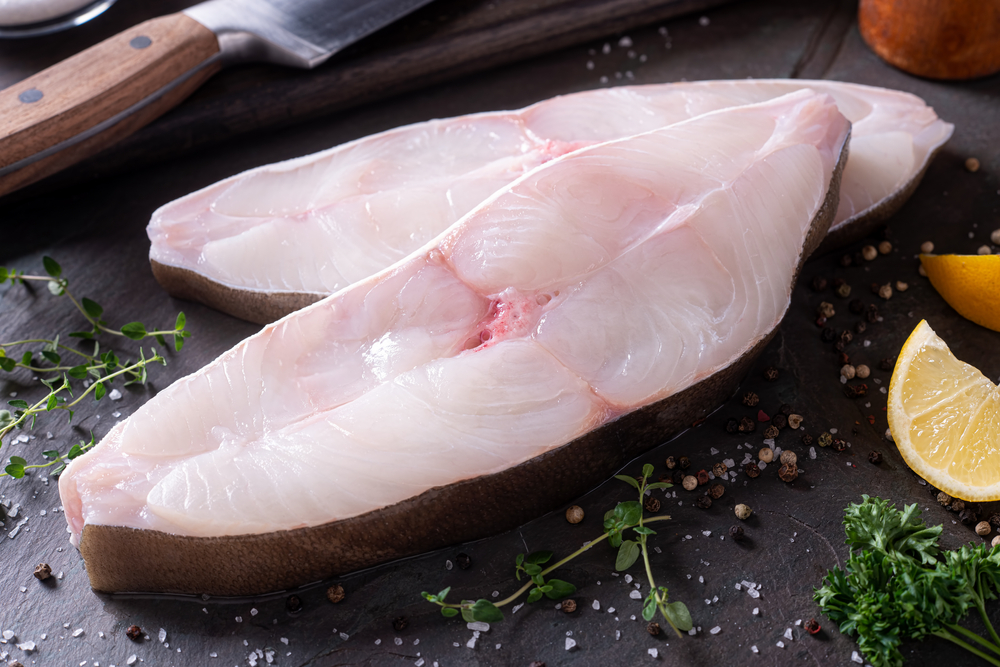
Pacific halibut populations are managed under strict quotas to prevent overfishing. They have a mild, sweet flavor and firm texture, ideal for grilling, broiling, or pan-searing. Halibut is a good source of protein and micronutrients like selenium. Sustainable management practices help maintain their population levels. Opting for Pacific halibut supports responsible fisheries.
Farmed Barramundi
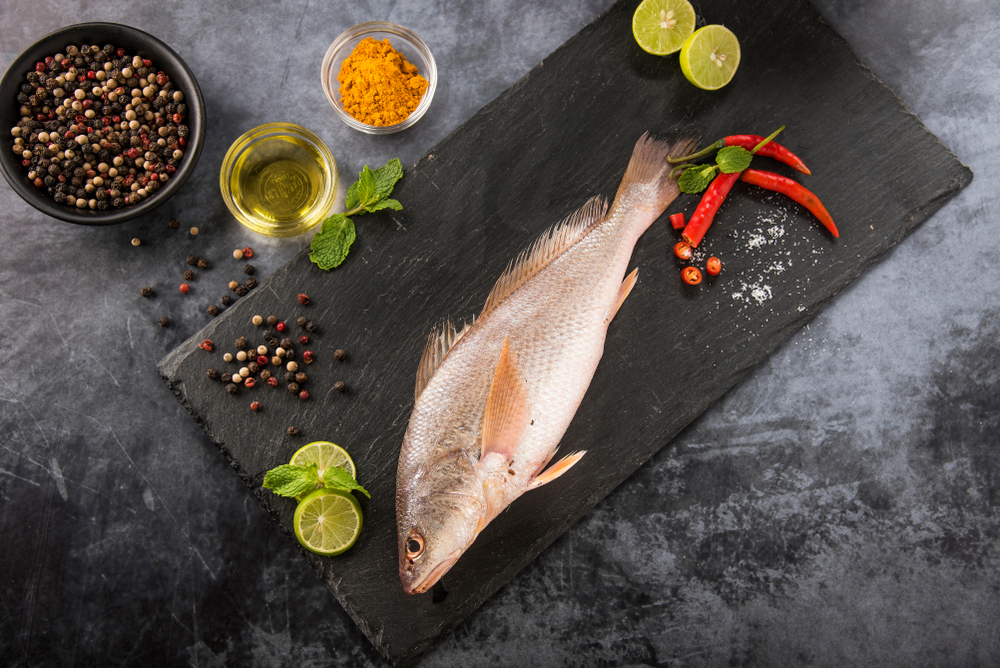
Farmed barramundi is considered sustainable, especially when raised in recirculating systems. It has a clean, buttery flavor and moist texture, suitable for grilling, baking, or steaming. Barramundi is high in omega-3 fatty acids and low in mercury. Sustainable farming methods ensure minimal environmental impact. Choosing farmed barramundi supports eco-friendly aquaculture.
U.S. Trap-Caught Spot Prawns
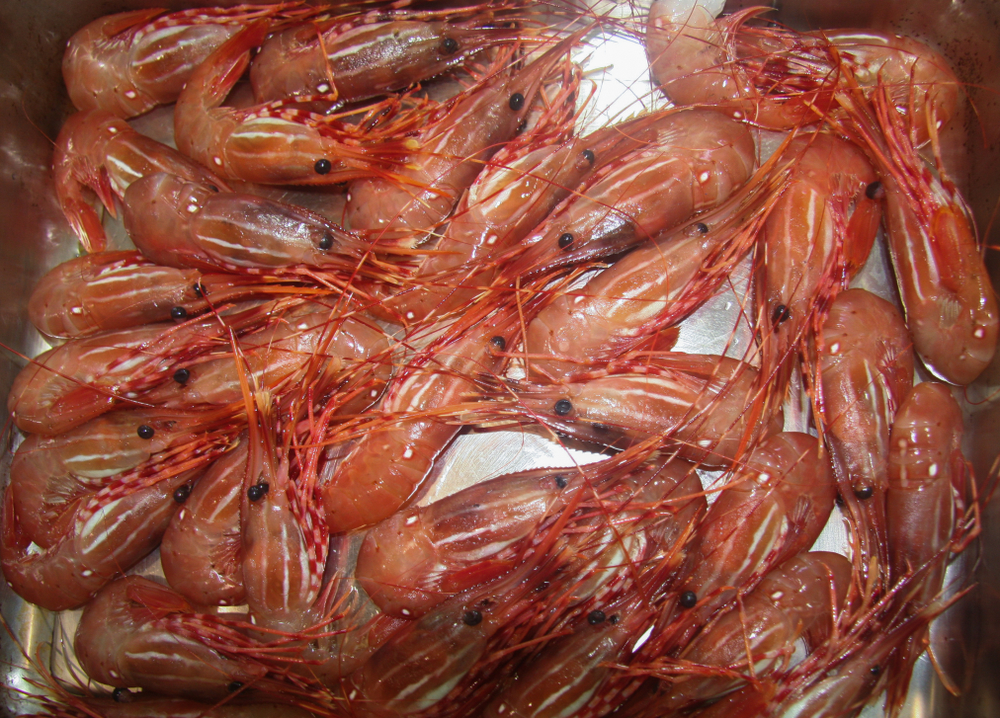
U.S. trap-caught spot prawns are harvested using methods that reduce bycatch and habitat damage. They are known for their sweet flavor and firm texture, and they are excellent for grilling, sautéing, or adding to pasta dishes. Spot prawns are low in fat and calories, making them a healthy choice. Sustainable harvesting practices help maintain their populations. Opting for U.S. trap-caught spot prawns supports responsible fishing methods.
Farmed Rainbow Trout
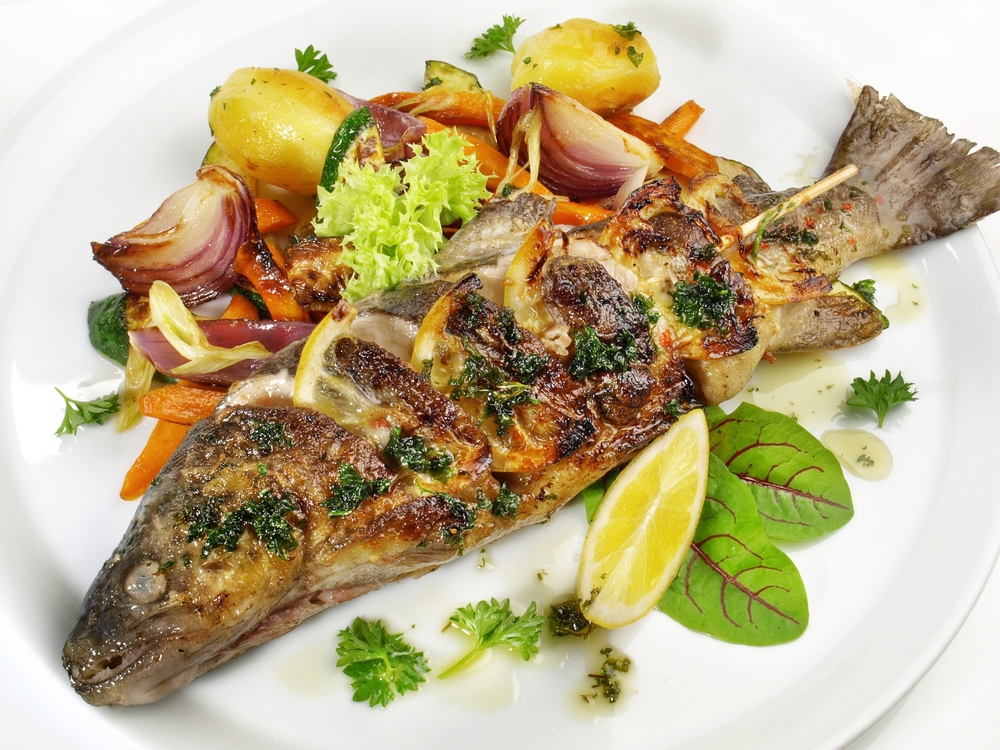
Farmed rainbow trout in the U.S. are typically raised in environmentally responsible systems. They have a delicate flavor and tender flesh, suitable for baking, grilling, or smoking. Rainbow trout is rich in protein and omega-3 fatty acids. Sustainable farming practices ensure minimal environmental impact. Choosing farmed rainbow trout supports eco-friendly aquaculture.
Pacific Albacore Tuna (Troll- or Pole-Caught)
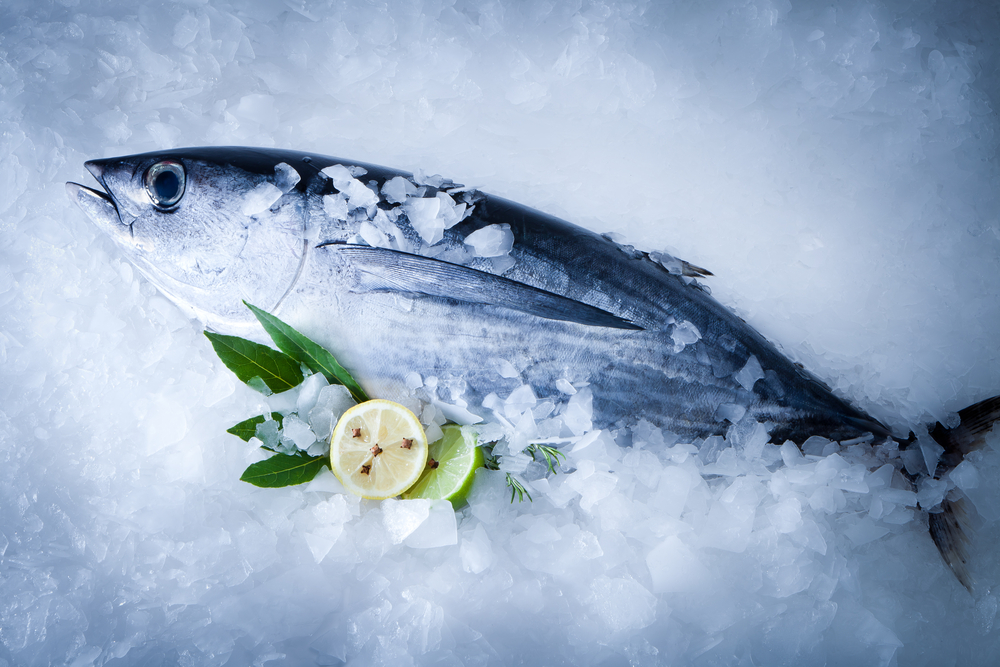
Pacific albacore tuna caught using troll or pole-and-line methods have lower bycatch rates. They have a mild flavor and firm texture, ideal for grilling, searing, or canning. Albacore tuna is a good source of lean protein and omega-3 fatty acids. Sustainable fishing methods help maintain their populations. Opting for troll- or pole-caught Pacific albacore tuna supports responsible fishing practices.
Farmed Oysters
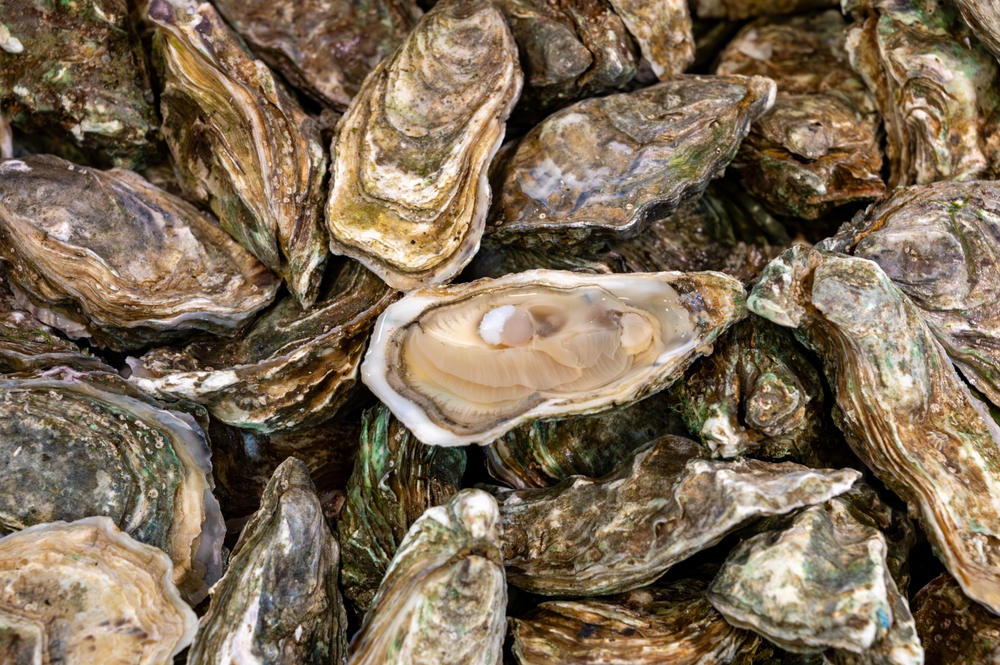
Farmed oysters are environmentally beneficial as they filter and clean the water, improving ecosystem health. They have a briny flavor and firm texture, enjoyed raw, grilled, or baked. Oysters are rich in zinc, iron, and vitamin B12. Sustainable farming practices ensure minimal habitat disruption. Choosing farmed oysters supports eco-friendly aquaculture.
U.S. Atlantic Sea Scallops
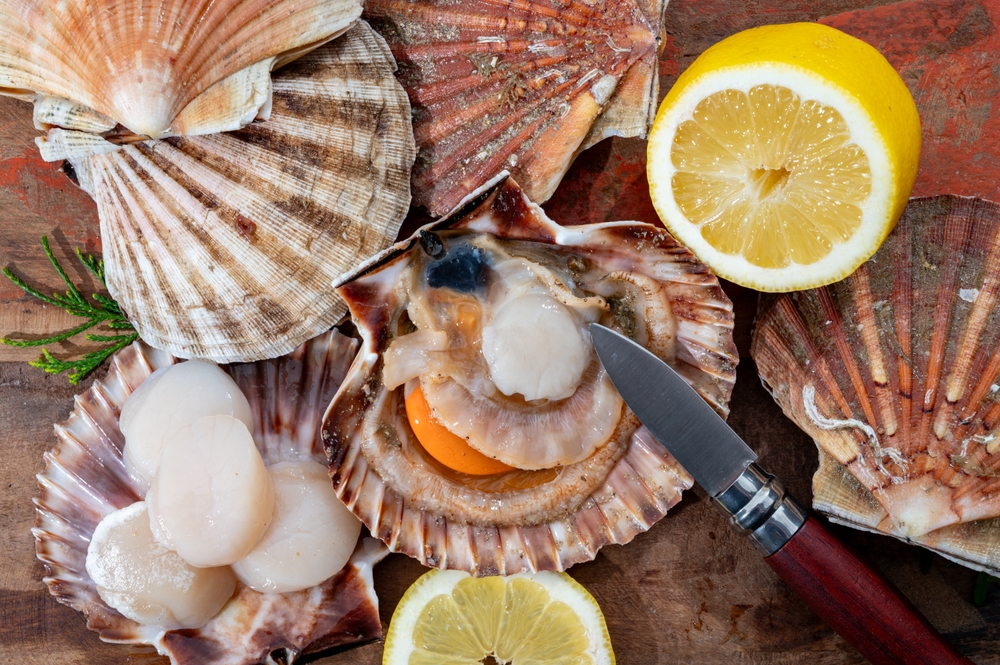
U.S. Atlantic sea scallop fisheries are well-managed, with measures to prevent overfishing. They have a sweet flavor and tender texture, perfect for searing, grilling, or adding to pasta dishes. Scallops are a good source of lean protein and vitamin B12. Sustainable management practices help maintain their populations. Moreover, opting for U.S. Atlantic sea scallops supports responsible fisheries management. These scallops are harvested using methods designed to reduce environmental impact, with strict adherence to quotas to ensure the long-term health of sea scallop populations.
Pole- and Line-Caught Skipjack Tuna
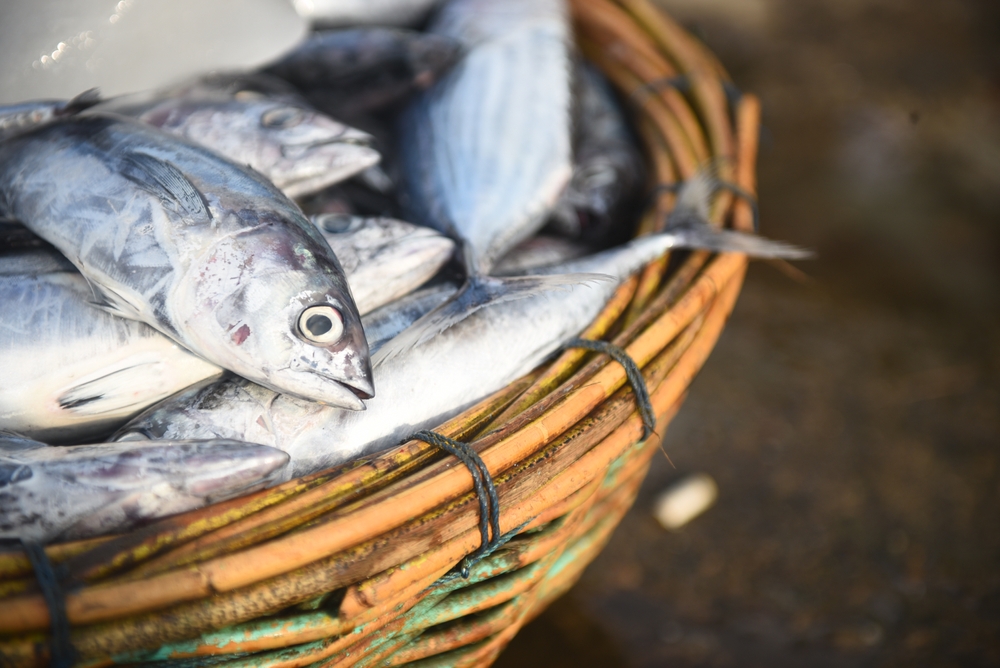
Skipjack tuna caught using pole-and-line methods ensures minimal bycatch of non-target species, making it a more sustainable choice. As a smaller species of tuna, skipjack is also lower in mercury compared to larger tuna species. This tuna is commonly used in canned products, offering versatility and affordability. Sustainably caught skipjack tuna supports healthier marine ecosystems and helps maintain biodiversity in tuna fishing areas.
European Farmed Sea Bass (Branzino)
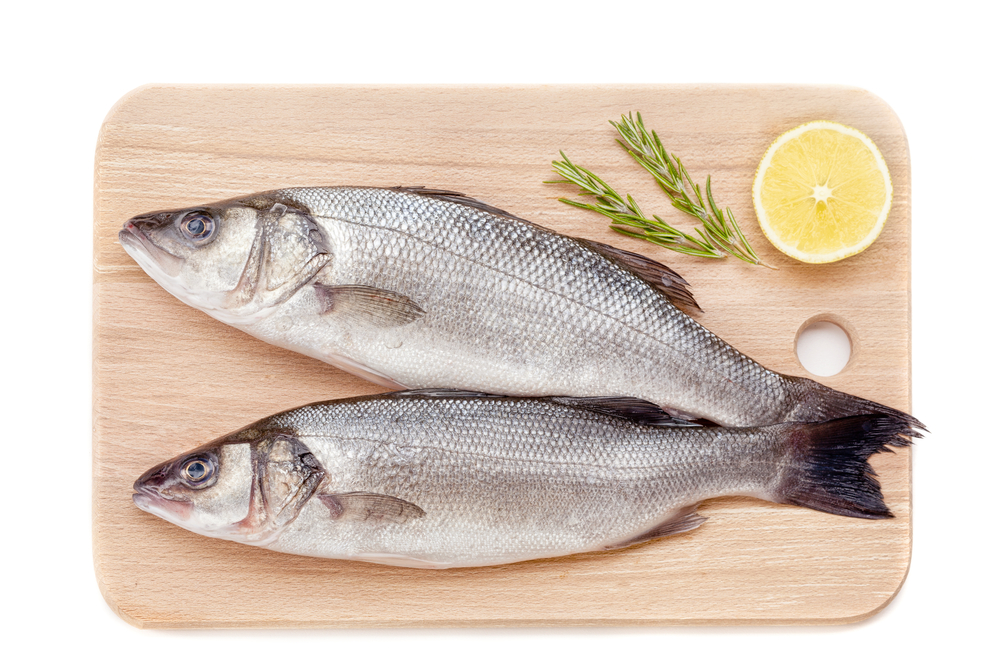
European farmed sea bass, or branzino, is cultivated using environmentally responsible methods that minimize the impact on wild fish populations and ecosystems. This fish has a mild, sweet flavor and a firm texture, making it perfect for grilling, roasting, or steaming. Rich in protein and omega-3 fatty acids, branzino contributes to a healthy diet. Choosing farmed branzino supports sustainable aquaculture practices that help preserve marine life.
New Zealand Green-Lipped Mussels
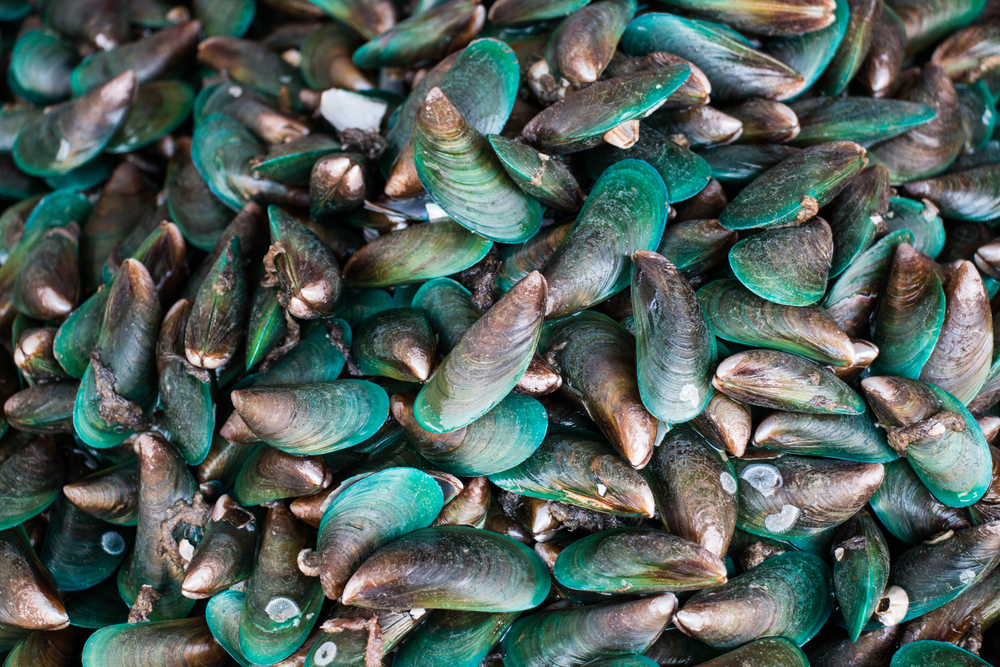
New Zealand green-lipped mussels are sustainably farmed with minimal environmental footprint. Known for their unique flavor and tender texture, they are ideal for steaming, baking, or grilling. These mussels are also rich in omega-3 fatty acids, which are recognized for their anti-inflammatory properties. Their farming practices help enhance water quality and marine habitats. By opting for green-lipped mussels, consumers support sustainable seafood production and contribute to the health of ocean ecosystems.
Lionfish
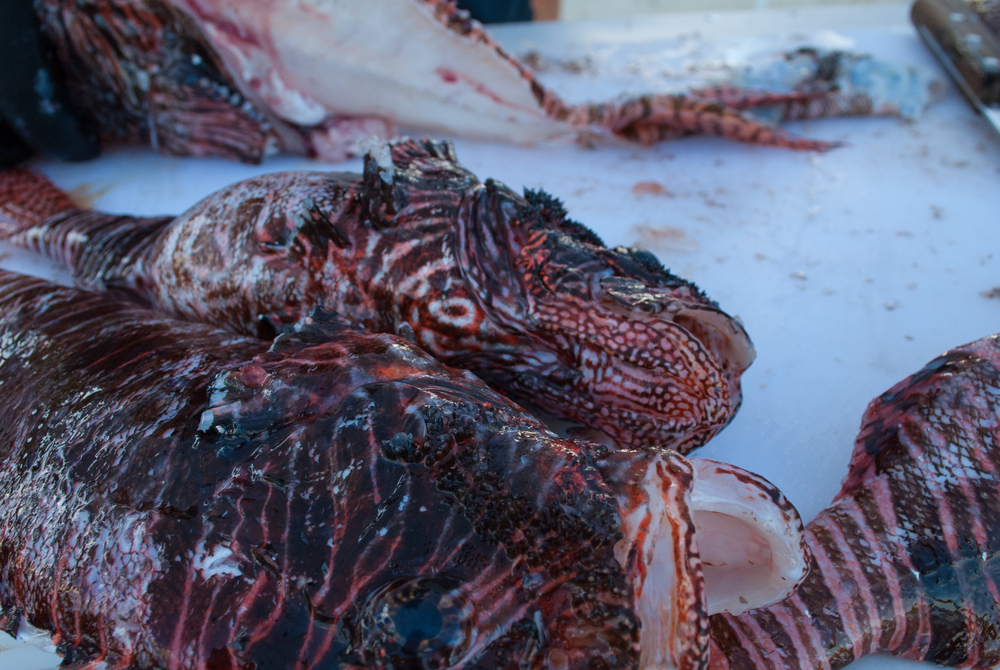
Lionfish, an invasive species in many coral reef areas, provides a sustainable seafood option that also helps protect native ecosystems. This fish has a mild flavor and flaky texture, making it suitable for grilling, frying, or baking. Eating lionfish supports efforts to control their overpopulation and prevent further damage to fragile coral reef environments. Rich in protein and low in fat, lionfish is a healthy choice for seafood lovers, and choosing it contributes to biodiversity conservation.
This article originally appeared on RetailShout.
More From RetailShout
13 Must-Have Hearth and Hand Holiday Decor from Target

The holidays are all about creating special moments, and your home’s decor plays a big part in setting the mood. Target’s Hearth & Hand collection by Magnolia offers stunning holiday decor that’s both stylish and affordable. Read More.
This Week’s 12 Hottest Finds at Costco (12/01/2024)

If you’re planning a Costco run this week, you’re in for a treat. The store is packed with new arrivals that are perfect for the season. From delicious snacks to handy household gadgets, these finds make shopping feel like a treasure hunt. Read More.
12 Walmart’s Best Christmas Tree Deals for a Festive Holiday

The holiday season is here, and it’s time to deck the halls with the perfect Christmas tree! Whether you love a classic green look, a trendy white tree, or even a bold pink statement piece, Walmart has some incredible deals to make your holiday sparkle without breaking the bank. Read More.






